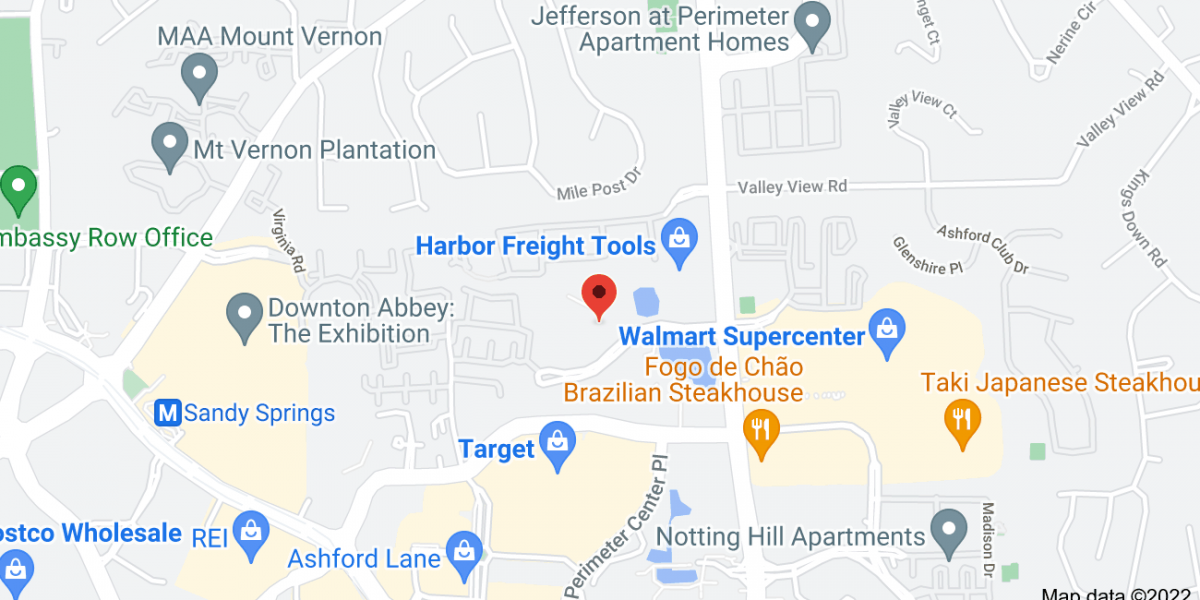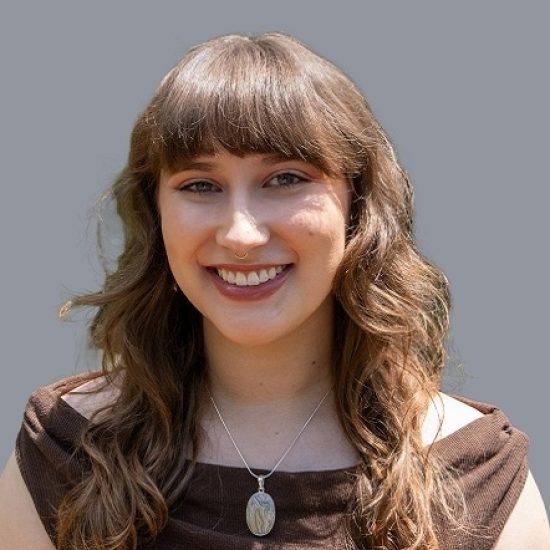Caron Atlanta offers specialized outpatient treatment, family counseling and referral services to support individuals struggling with substance use disorders. This location focuses on providing a continuum of care that includes professional assessments, early intervention and tailored recovery solutions while collaborating closely with families.
Caron Atlanta Addiction Treatment & Rehab Center
Caron Atlanta offers exceptional treatment and recovery support for teens, adults, and family members.
Call Caron AtlantaAtlanta Outpatient Addiction Treatment Center Details
Caron Atlanta is here to help individuals and families dealing with substance use challenges. Our center, located in the Atlanta area, offers outpatient services like professional assessments, early intervention programs and counseling. We also focus on involving families because we believe loved ones play an important role in recovery.
While Caron Atlanta is not a residential facility, we can connect you to Caron’s trusted inpatient programs or other resources when needed. Caron Atlanta is here to help you succeed whether you’re just starting your recovery journey, transitioning from more intensive care or looking for ongoing support.
Insurance
Caron Atlanta Programs
Comprehensive Drug and Alcohol Assessments
Caron believes that the most effective substance use disorder treatment is individualized, which is why our patients undergo a comprehensive evaluation process. A licensed therapist conducts the assessment to learn about the patient’s health, psychosocial history, maladaptive behaviors, and co-occurring mental health and addictive disorders.
Based on the findings, the treatment team recommends the level of care most likely to help patients achieve wellness and long-term recovery. Depending on the patient, counselors may recommend outpatient treatment at Caron Atlanta, inpatient treatment at one of Caron’s residential campuses, or mental health services.
Young Adult Intensive Outpatient Group (18-25)
An Intensive Outpatient Program (IOP) designed for young adults who are struggling with meeting life’s challenges due to substance use.
In this program you will learn anxiety & stress management skills, goal setting, organizational skills, sober autonomy and identity, how to have fun without substances, the neurobiology of addiction, brain health, healthy boundaries with family & friends, emotional stability, and peer connection. This program will also focus on the important developmental tasks of young adulthood, such as identity and values exploration while achieving goals without the use of substances.
Call now to discuss a treatment plan that fits your needs.
Teen Recovery Group (14-18)
A once-per-week 90-minute outpatient group to help teens address problematic substance use. In this group teens and parents will learn about the ways substances impact the brain and development, identifying triggers for using, sober coping skills, anxiety and stress management, and how to obtain peer connection without substances. Parents attend the second half of group with their teens and the focus will be on healthy boundaries, family roles, and communication.
Call now to discuss a treatment plan that fits your needs.
Adult Intensive Outpatient Group
With the guidance of an experienced therapist and peer support, patients learn to deal with their emotions in a healthy way, resolve challenges, and develop coping skills. The therapist also provides recovery resources. As needed, patients may also receive individual counseling and attend support groups. The group meets three days a week for three hours.
Individual Counseling
The therapist guides the patient as they work through issues related to substance use disorders and any co-occurring disorders with which they may be struggling. The focus and depth that individual counseling offers can help patients build a stronger foundation for lasting recovery.
Call now to discuss a treatment plan that fits your needs.
Family Treatment and Support
- Family Counseling: Family members with a loved one in an intensive outpatient group can meet with a therapist, with or without the patient, to identify, discuss, and address issues related to how they have been impacted by the patient’s alcohol or drug use.
- Multi-Family Group: For those struggling with the effects of addiction, whether they are patients, parents, significant others, spouses, or extended family, this group led by an experienced therapist offers resources and information. Topics include codependency, enabling vs. support, parenting, education on the disease of addiction and the recovery process, healthy communication, co-occurring disorders, resources for family recovery and support, and others.
-
Parent and Family Support Groups: For families impacted by alcohol and drug abuse and related behaviors, these support groups provide a confidential, safe place for finding resources, support, networking opportunities, encouragement, and hope.
Neurotherapy Services
Substance use and addiction, like other emotional and behavioral challenges, is a physical issue. The brain and nervous system can malfunction, as the heart does lead to chronic cardiac conditions. Those brain malfunctions can cause or contribute to addiction, anxiety, and depression, among others.
Neurotherapy can transform the way your brain and nervous system function so that you can manage substance use/addiction, anxiety, depression, traumatic brain injury, ADHD, sleep disorders, and other brain-related issues and increase well-being.
Our neurotherapy specialist starts by creating and analyzing your brain map to see what areas of your brain could benefit from treatment. Much like a personal trainer develops a fitness plan, the specialist then develops a treatment plan to optimize brain function. Integrative neurotherapies include:
-
Neurofeedback to help the brain to retrain its electrical patterns for better functioning
-
Alpha-Stim therapy (cranial electrical stimulation to promoted calmer electrical signals in the nervous system
Recovery Services
Caron’s Recovery Services assist patients as they transition into recovery, particularly for challenging times like transitioning from residential treatment to home. Services include screenings, My Recovery Connection, stabilization, family meetings, and recovery coaching. These services are available to anyone who needs them, even if they did not have treatment at Caron.
Aviation Assessment Program
For those who have been referred by the Federal Aviation Administration (FAA) because of a potentially aero-medical disqualifying condition, this assessment will determine the next steps to take, including whether additional treatment is needed, what type of treatment may be necessary, and whether a follow-up evaluation will be required.
After the assessment, the staff addiction psychiatrist will provide a summary of his findings with recommendations for next steps that may include treatment, medication, therapy, and/or monitoring, and send it to the FAA. An FAA medical examiner follows up with the recommendation for next steps.
Click here to learn more about the Aviation Assessment Program.
Prevention Services
Caron’s prevention education programs give young people, parents, and educators straightforward information about substance use and healthy ways to cope with life's challenges without the use of addictive substances.
- Teen Intervene is an evidence-based, educational early intervention program for students (ages 12-19) who have issues with drugs/alcohol that need attention.
-
The Student Assistance Program provides comprehensive, customized drug, alcohol, and nicotine prevention services and healthy living programs for elementary and high school students as well as parents, caregivers, and youth-serving professionals.
Caron Atlanta Outpatient Treatment Center is considered an approved treatment facility for the Georgia Board of Pharmacy and Georgia Board of Dentistry, more information here.
Caron Atlanta Frequently Asked Questions
No, Caron Atlanta is not a residential treatment center. It is an outpatient and resource center designed to address the clinical and recovery needs of patients and families. For residential treatment options, Caron Atlanta can refer patients to its inpatient facilities or other appropriate providers.
Caron Atlanta serves local individuals and families who are in need of substance use disorder treatment, support during early recovery or guidance in navigating the best next steps for long-term recovery. Our programs are helpful for those looking for a flexible, outpatient-focused approach to treatment.
Caron Atlanta offers family-focused counseling sessions, support groups and educational resources to help families understand substance use disorders and how they can support their loved ones in recovery. Family collaboration is an integral component of Caron Atlanta’s approach to care.
Our empathetic, expert staff helps you navigate recovery.
Caron Atlanta Resources
Take the next step:
Start with an online form
-
Caron in Pennsylvania
1-800-854-6023 -
Caron in Florida
1-800-221-6500 -
Breakthrough at Caron
1-800-213-7834








